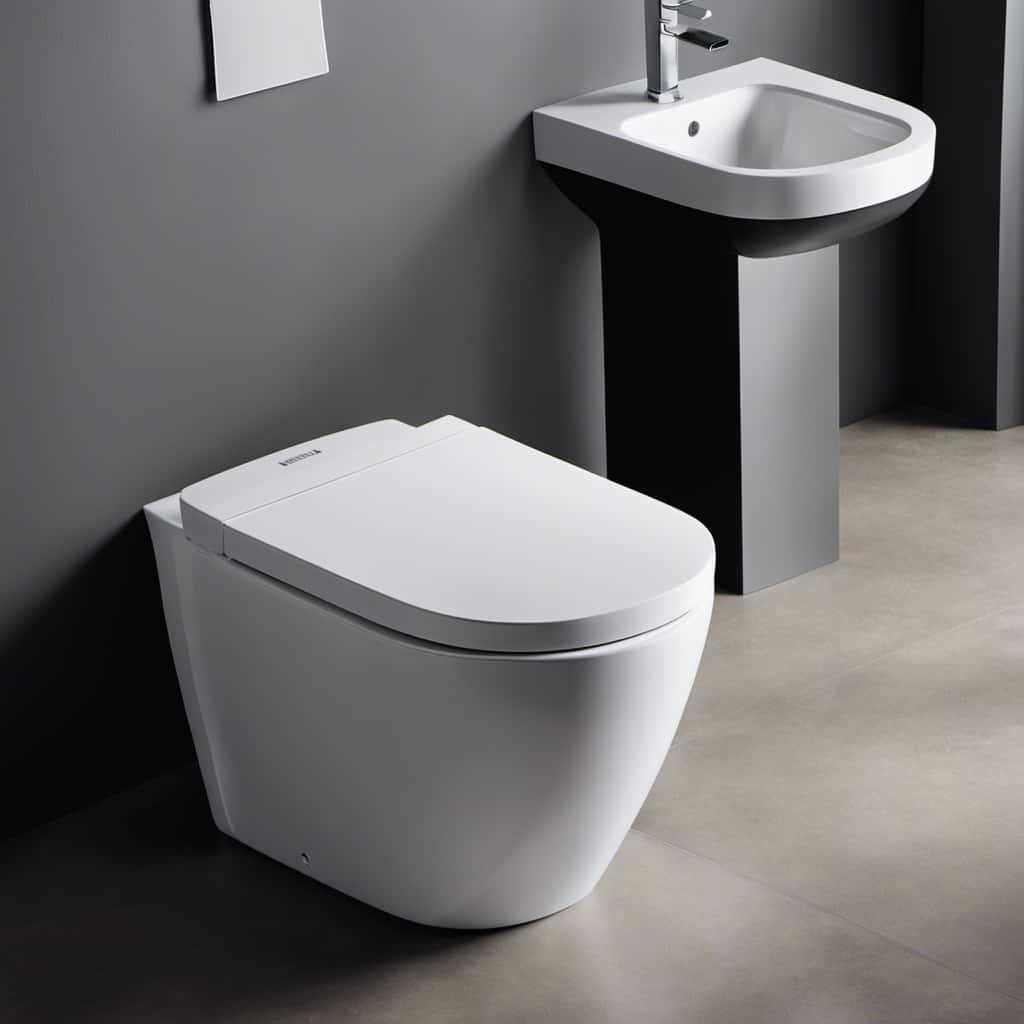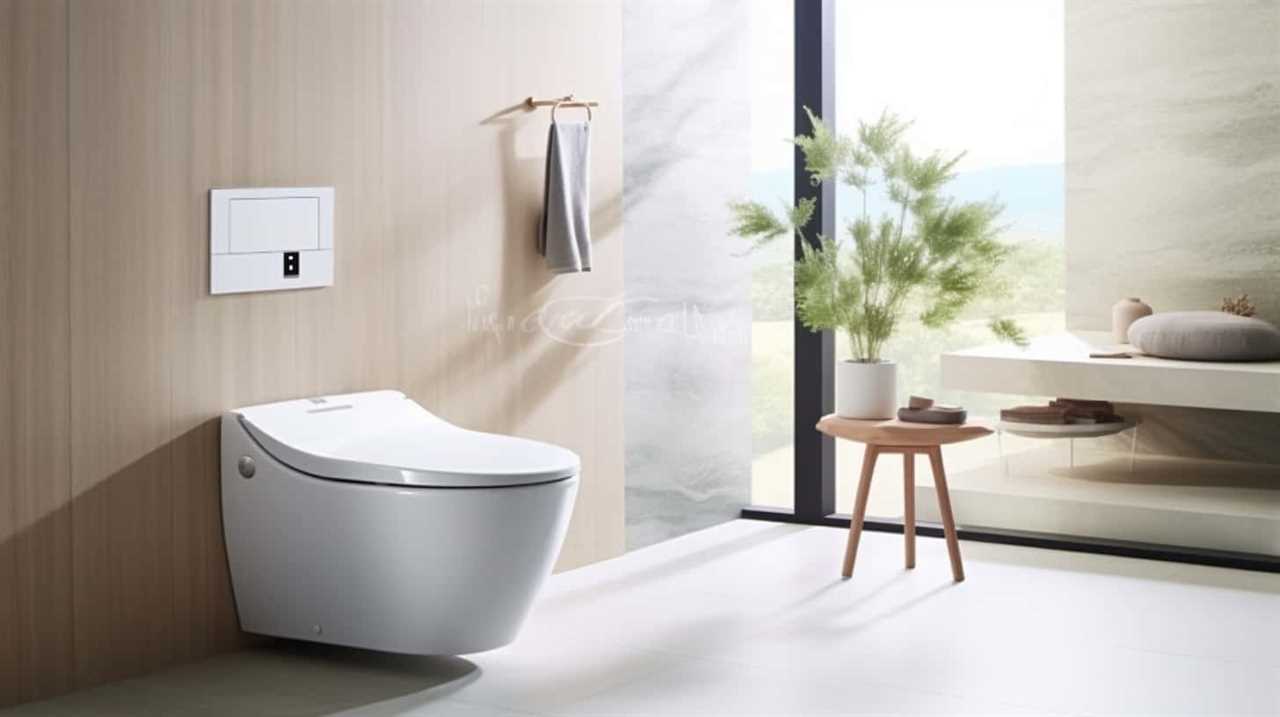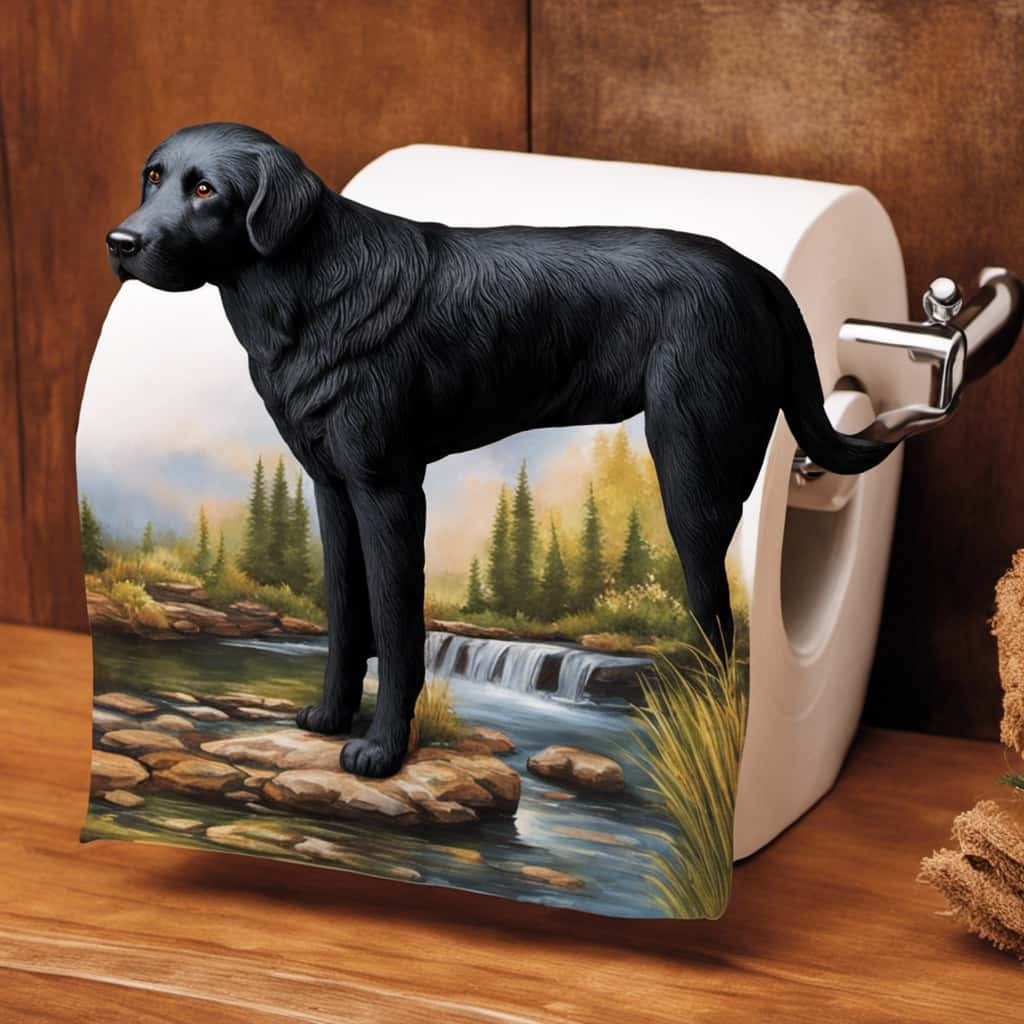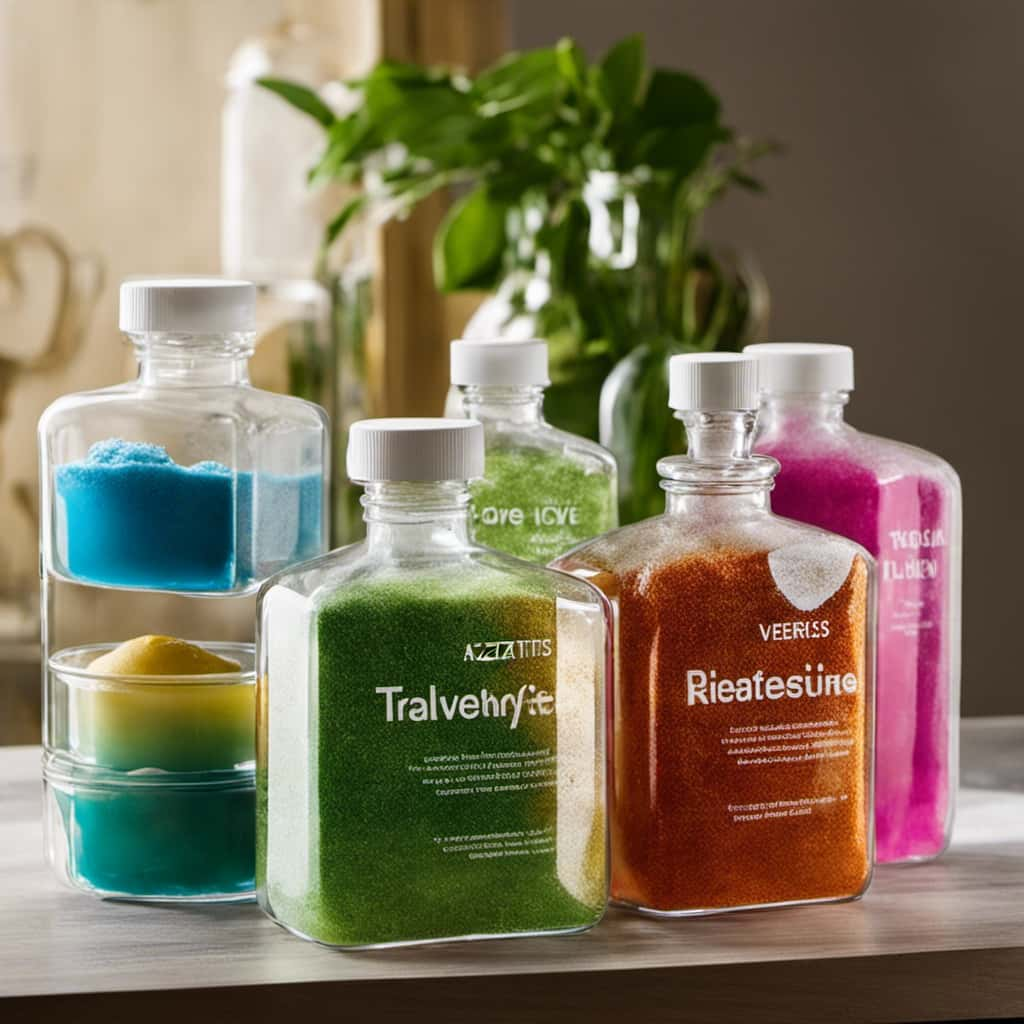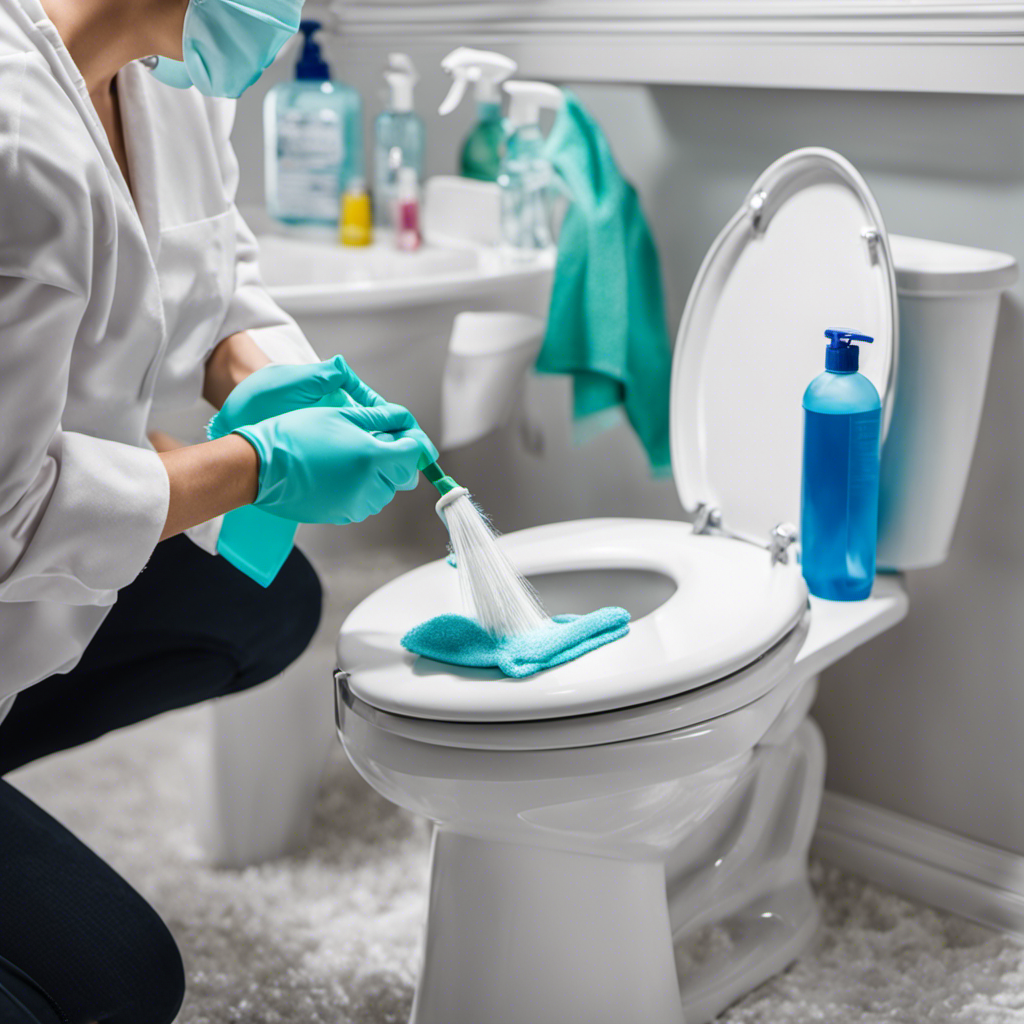Did you know that nearly one in five households in the United States rely on septic tanks for wastewater treatment? If you’re one of them, it’s important to know what you can and can’t use to avoid costly repairs.
In this article, we’ll explore the items you should steer clear of when it comes to your septic system. From toilet paper alternatives to harsh chemicals, we’ve got you covered with all the information you need for septic tank mastery.
Key Takeaways
- Alternatives to toilet paper such as bidet sprayers and cloth wipes are environmentally friendly and reduce waste going into the septic tank.
- Harsh chemicals disrupt the bacteria balance in the septic tank, so it’s recommended to use natural cleaners like vinegar, baking soda, and lemon juice.
- Excessive grease and fats should not be disposed of down the drain or toilet, as they can cause clogs and hinder waste breakdown.
- Non-biodegradable items such as plastic waste, disposable diapers, and synthetic feminine hygiene products can cause blockages and damage to the septic system, so proper disposal is crucial.
Toilet Paper Alternatives
When it comes to maintaining a septic tank, we need to consider alternatives to traditional toilet paper. One option to explore is using a bidet sprayer. This handheld device allows you to clean yourself with a gentle stream of water, eliminating the need for toilet paper altogether. Bidet sprayers are easy to install and use, providing a hygienic and environmentally friendly alternative.
Another alternative is cloth wipes. These reusable wipes can be made from soft, absorbent fabric and used in place of toilet paper. After use, simply wash them and reuse. Both bidet sprayers and cloth wipes are effective alternatives that reduce the amount of waste going into your septic tank.
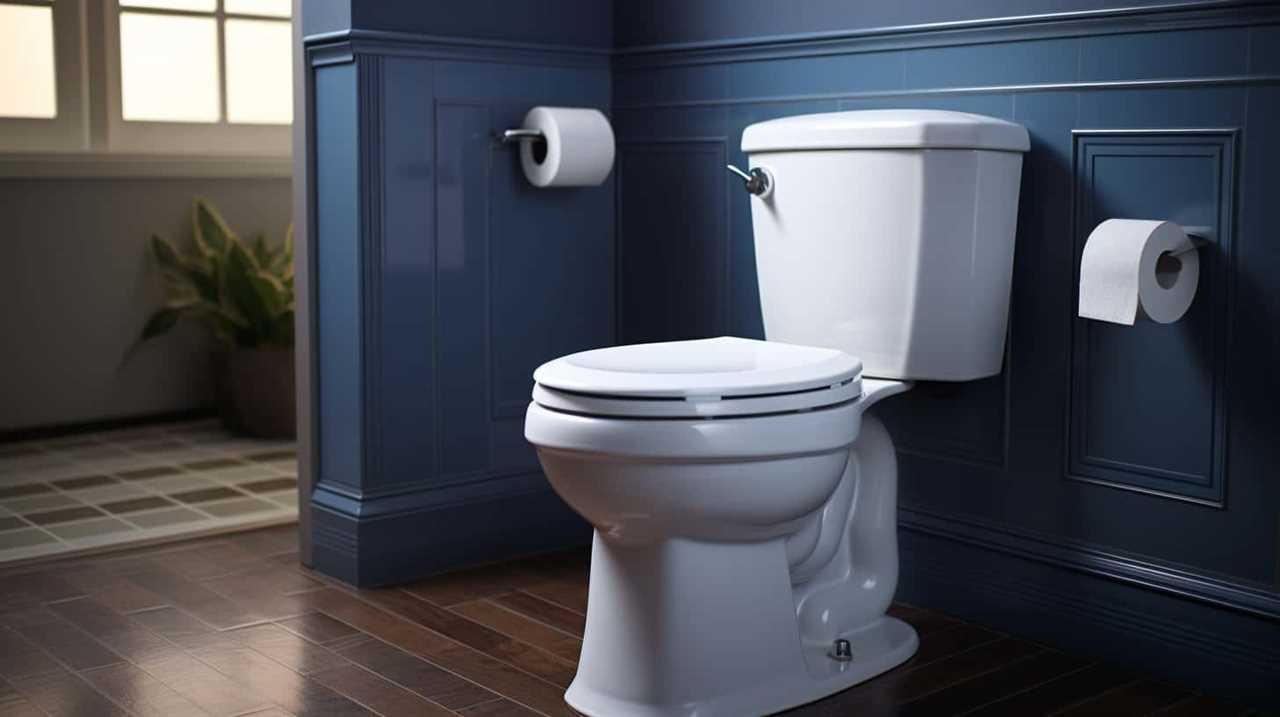
By adopting these alternatives, you can promote the longevity and proper functioning of your septic system.
Now, let’s move on to the next section, where we’ll discuss the impact of harsh chemicals and cleaners.
Harsh Chemicals and Cleaners
We should avoid using harsh chemicals and cleaners in our septic tanks. These substances can disrupt the delicate balance of bacteria that break down waste in the tank, leading to system failures and costly repairs.
Instead, consider using natural cleaning solutions that are gentler on your septic system. Here are three alternatives to harsh chemicals and cleaners:

- Vinegar: A versatile and effective cleaner, vinegar can be used to tackle a variety of household cleaning tasks. It’s a natural disinfectant and helps to control odors without harming the beneficial bacteria in your septic tank.
- Baking Soda: This common ingredient can be used to scrub sinks, toilets, and surfaces without causing any harm to your septic system. It helps to neutralize odors and can be used as a gentle abrasive.
- Lemon Juice: The acidity in lemon juice makes it an effective cleaner for removing stains and cutting through grease. It leaves a fresh citrus scent and is safe to use in your septic tank.
Grease and Fats
To properly maintain a septic tank, it’s important to avoid introducing excessive grease and fats into the system, as they can cause clogs and hinder the natural breakdown of waste. Grease, such as cooking oil, and fats from meat and dairy products shouldn’t be disposed of down the drain or toilet. Instead, it’s recommended to let them cool and solidify, and then dispose of them in the trash.
When it comes to toilet paper disposal, it’s crucial to use toilet paper that’s septic-safe and easily biodegradable. This ensures that the paper breaks down quickly, preventing any potential blockages in the septic system.
Proper kitchen waste management is also essential to avoid overloading the septic tank. This includes avoiding disposing of food scraps, coffee grounds, or any other solid waste down the drains.
By adhering to these guidelines, you can prevent clogs and keep your septic tank functioning efficiently.
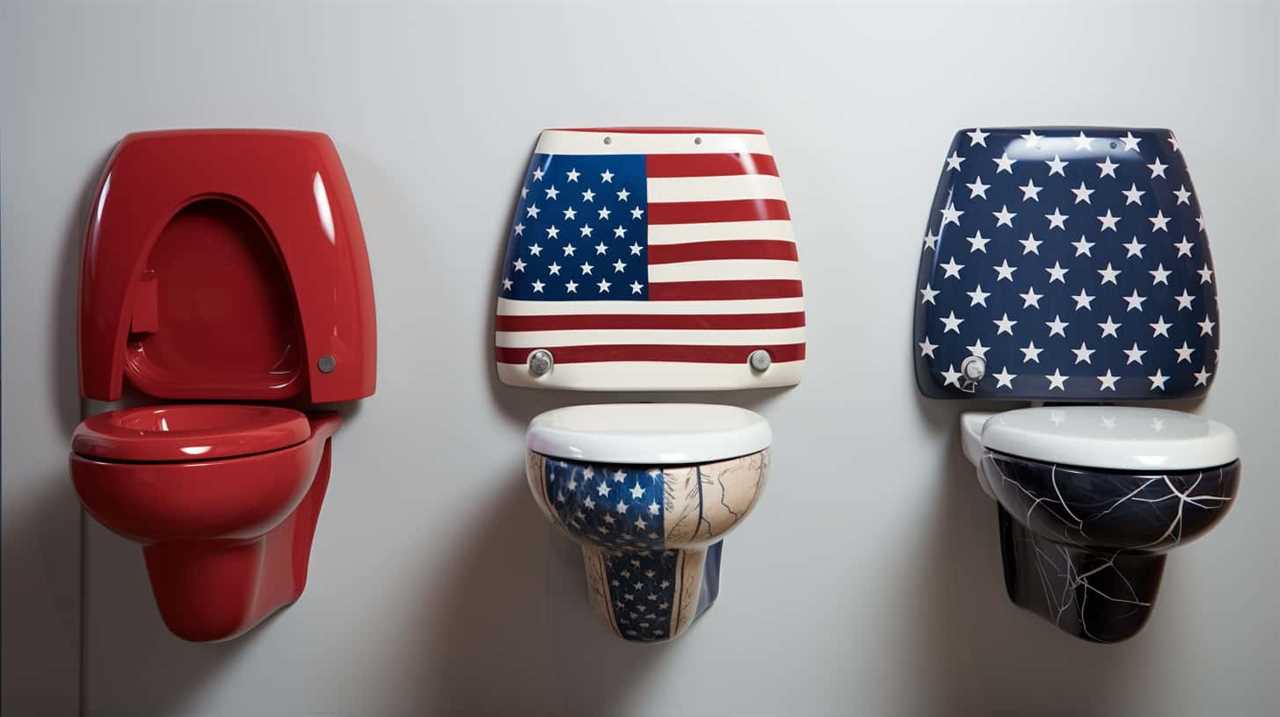
Now, let’s move on to the next topic of non-biodegradable items.
Non-Biodegradable Items
One common issue that can arise when managing a septic tank is the presence of non-biodegradable items. These items don’t break down easily and can cause blockages or damage to the septic system. Here are three non-biodegradable items that should never be disposed of in a septic tank:
- Plastic waste: Plastic materials like bottles, bags, and packaging can clog the pipes and inhibit the natural flow of wastewater. Plastic takes hundreds of years to decompose, making it a significant threat to septic systems.
- Disposable diapers: Diapers are made of plastic and contain absorbent materials, both of which aren’t biodegradable. When flushed down the toilet, they can cause blockages and lead to costly repairs. It’s essential to dispose of diapers in the trash instead.
- Sanitary products: Tampons, pads, and other feminine hygiene products are typically made of synthetic materials that don’t break down easily. Flushing them can cause blockages and damage to the septic system.
To maintain a healthy septic tank, it’s crucial to avoid disposing of these non-biodegradable items properly.
Excessive Water Usage
Using excessive amounts of water can put a strain on your septic tank’s functionality and lead to potential issues. Water conservation is essential for maintaining the health of your septic tank. By being mindful of your water usage, you can prevent overloading the system and avoid costly repairs. Here are some water-saving tips to keep in mind:
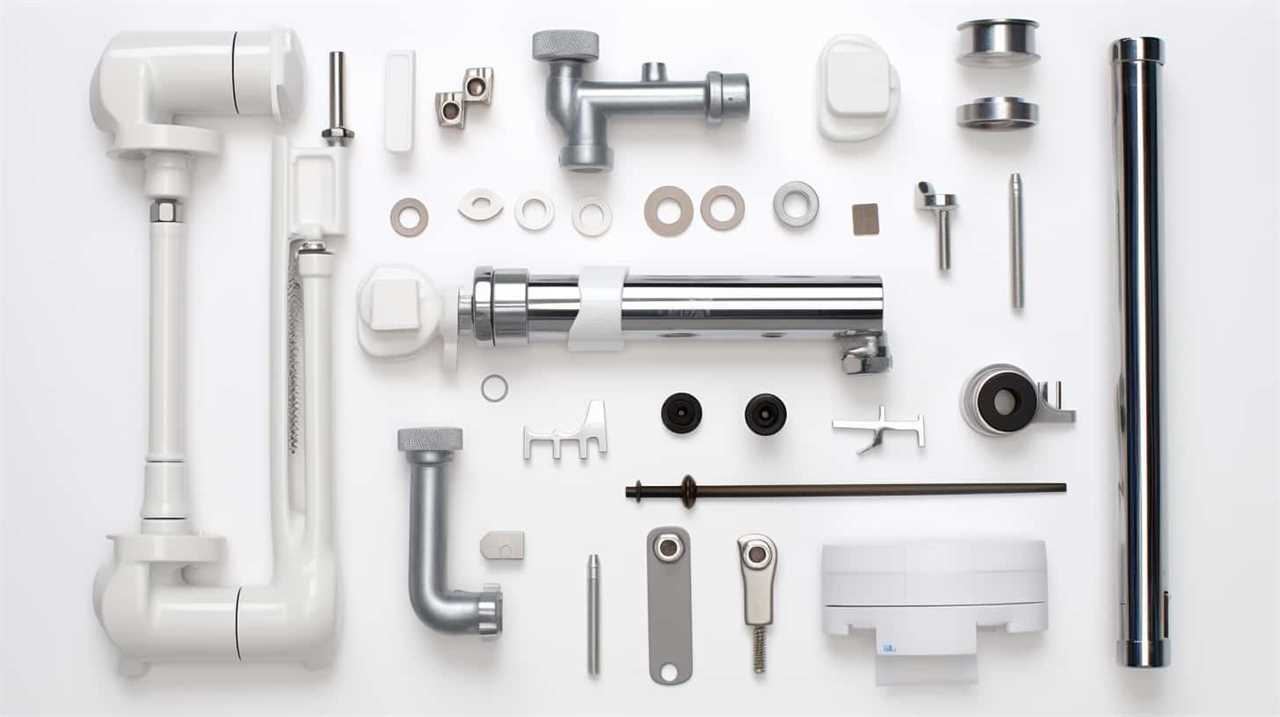
| Water Conservation Tips | Benefits | Septic Tank Maintenance |
|---|---|---|
| Fix leaky faucets and toilets | Reduces water waste | Prevents excess water from entering the tank |
| Install low-flow fixtures | Reduces water usage | Decreases strain on the septic system |
| Spread out water usage | Prevents overload | Allows the tank to properly treat wastewater |
| Use water-efficient appliances | Saves water and energy | Reduces the burden on the septic system |
| Limit the use of garbage disposals | Minimizes solid waste | Helps maintain proper bacterial balance |
Implementing these water conservation practices will not only benefit the environment but also help you maintain the longevity and efficiency of your septic tank.
Frequently Asked Questions
What Are Some Eco-Friendly Alternatives to Toilet Paper That Are Safe to Use With a Septic Tank?
Eco-friendly toilet paper alternatives that are safe for septic tanks include bamboo toilet paper, recycled toilet paper, and bidets. Additionally, using septic-safe cleaning products and reducing water usage can help maintain a healthy septic system.
Are There Any Specific Chemicals or Cleaners That Should Be Avoided When Cleaning a Septic Tank System?
Chemical cleaners can harm septic tank systems. Instead, use safe household products like vinegar, baking soda, and lemon juice to clean your septic tank. These eco-friendly alternatives are effective and won’t disrupt the balance of bacteria in your system.
Can Small Amounts of Grease or Fats Be Safely Disposed of in a Septic Tank?
Yes, small amounts of grease or fats can safely be disposed of in a septic tank. However, it is important to avoid using chemicals that could have a negative impact on the tank’s system.
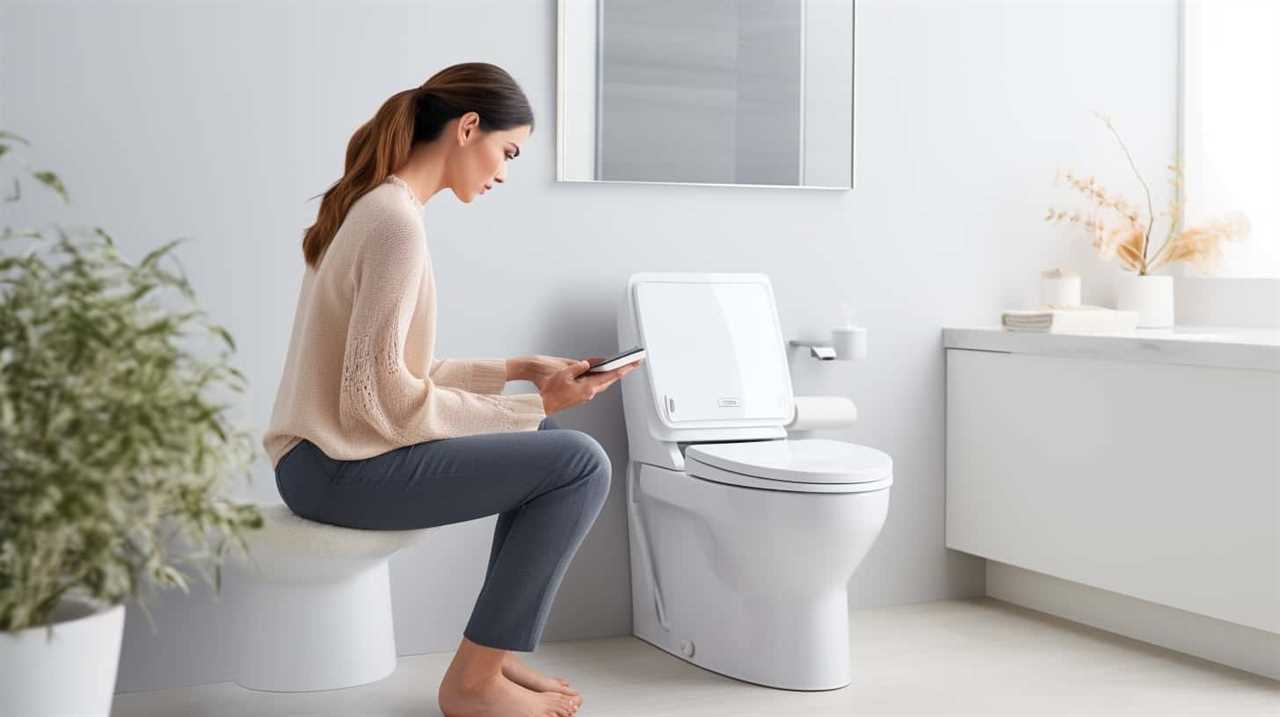
What Are Some Examples of Non-Biodegradable Items That Should Never Be Flushed Down the Toilet When You Have a Septic Tank?
When you have a septic tank, it’s important to know what non-biodegradable items should never be flushed down the toilet. Proper disposal of these items, along with using eco-friendly toilet paper alternatives, ensures the health of your septic system.
How Can Excessive Water Usage Negatively Impact the Functionality of a Septic Tank System?
Excessive water usage can overload a septic tank system, leading to ineffective waste breakdown and potential system failure. Septic tank additives may have little impact, while regular maintenance ensures optimal functionality.
Conclusion
In conclusion, it’s important to be mindful of what we put down our drains when we’ve a septic tank. Avoid using harsh chemicals and cleaners, as well as non-biodegradable items. Opt for toilet paper alternatives that are septic-safe and avoid excessive water usage.
Remember, ‘a stitch in time saves nine,’ so taking precautions now will prevent costly repairs in the future. Keep your septic system healthy and functioning smoothly by being aware of what you can and can’t use.
